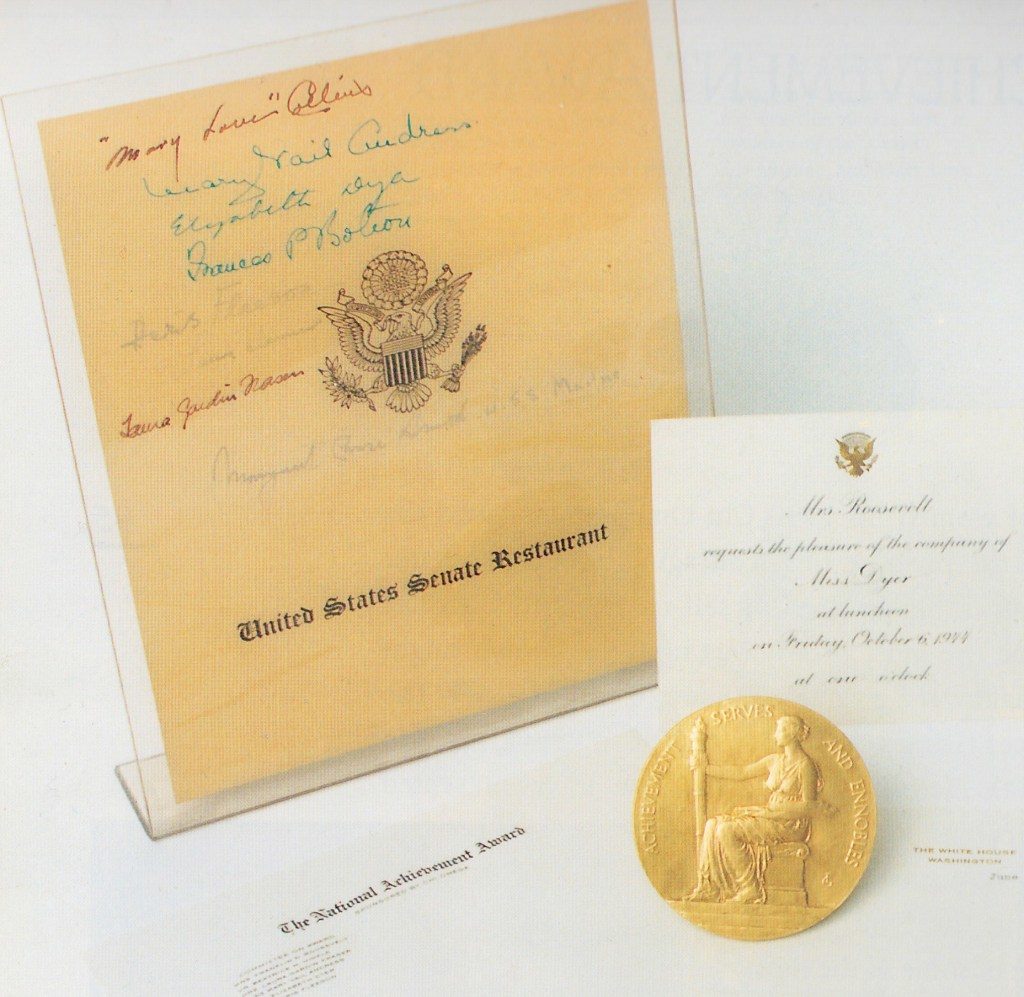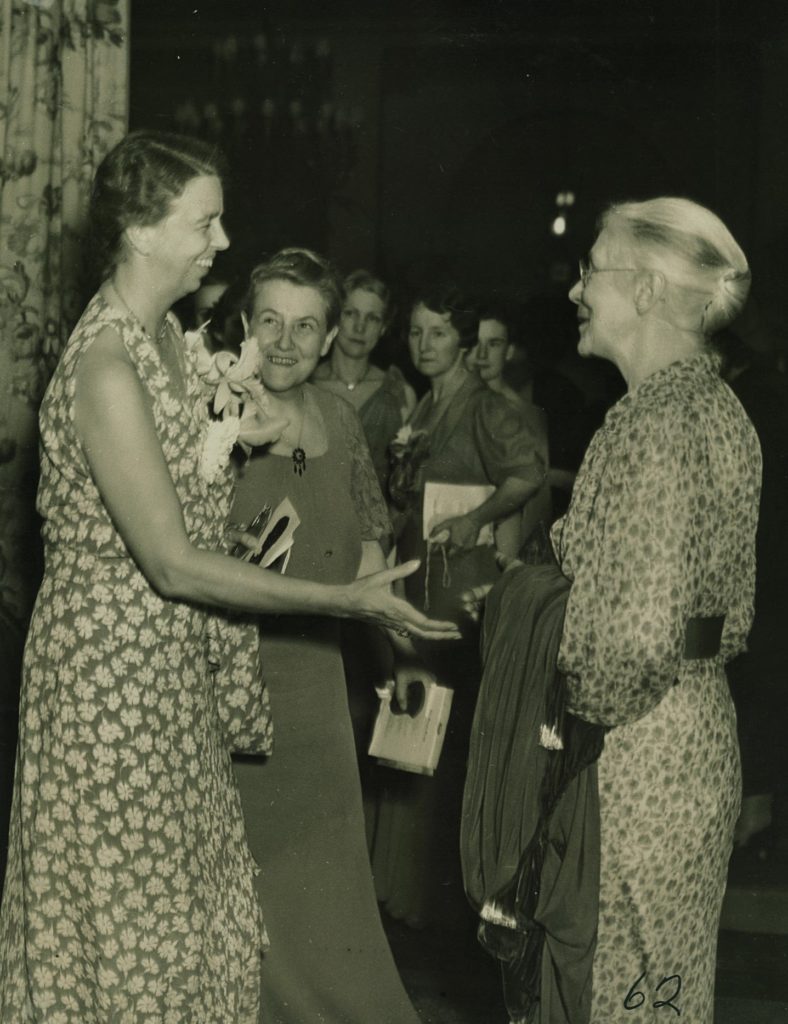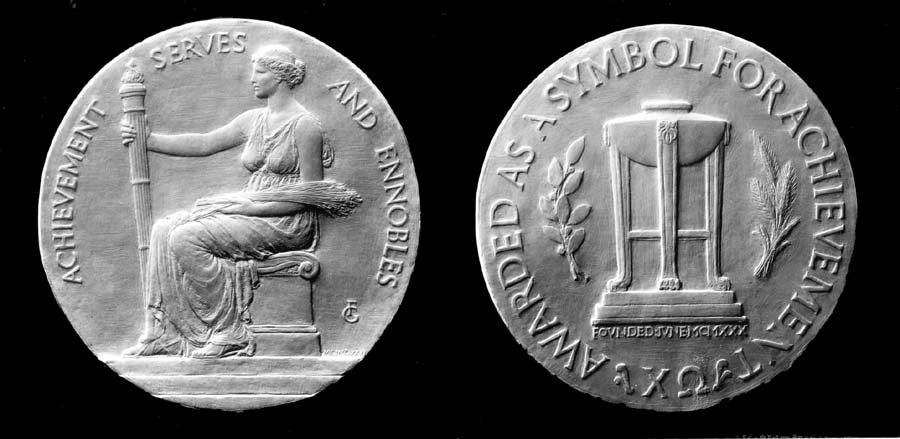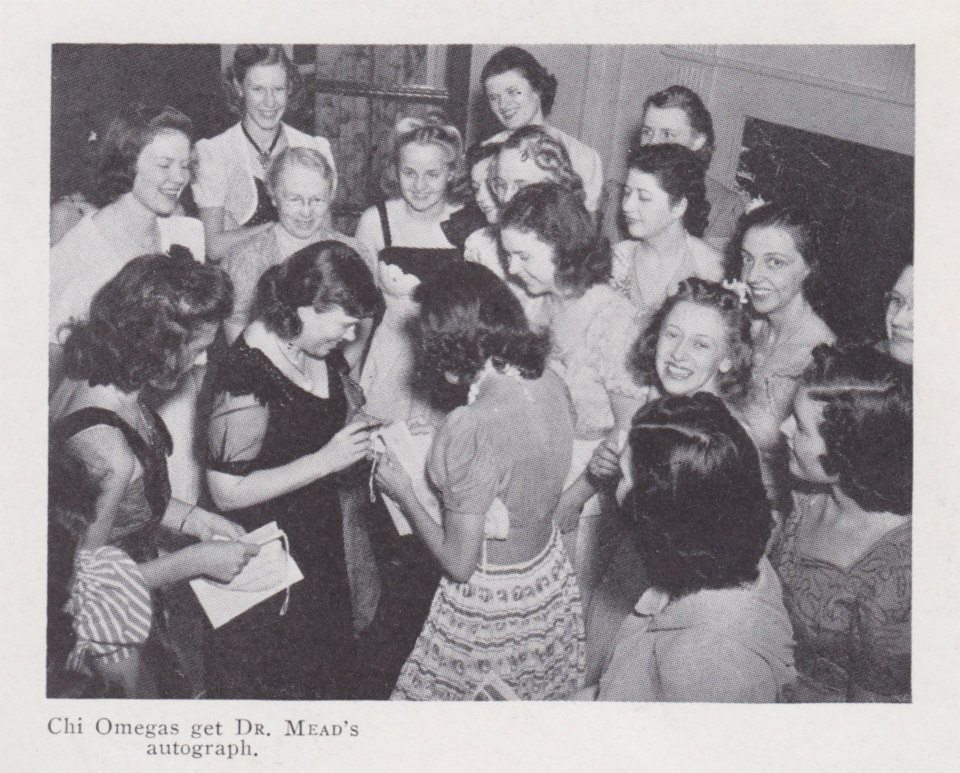In a time when women were not equally recognized with top honors like the Pulitzer or Nobel Prize, leaders of Chi Omega noted this gender disparity and decided to make their own award to acknowledge the transformative work being done by women around the world.
The National Achievement Award, first given in 1931, positioned Chi Omega as a leader in culture, especially in regards to honoring women’s contributions. It allowed for purposeful connections to form between Sisters and leaders of various fields, and these connections went on to guide the progress and evolution of our Fraternity alongside societal evolution. The impacts of this award and the connections fostered still ripple into the Fraternity’s current endeavors and network of support and community.
The award was the first of its kind to be given by a national women’s organization for the outstanding achievements of a woman, and it helped to dispel the myth that women could not appreciate the distinguished accomplishments of one another.

For 22 years, a deserving woman, always someone outside of the Fraternity, who excelled as a leader in the arts, politics, the pursuit of human rights, or the theater was awarded this prestigious medal.
In lavish fashion, the award was presented at the White House several times, as Eleanor Roosevelt herself served on the selection committee for a number of years. When the award presentation was not at the White House, it was often during Convention at the beloved Greenbrier.

In her column, Mrs. Roosevelt wrote, “In the evening I went to Washington… to attend a meeting at which the Chi Omega Achievement Award for 1950 will be given to Miss Edith Hamilton in the field of literature… It is a recognition that women not only admire achievement but dislike certain methods that may be used to try to discredit a patriotic and able public servant.”
The medals were designed by Frances Grimes and were solid 14 carat gold disks, 2.75 inches in diameter bearing the image of Demeter, the patron goddess of Chi Omega.
After Frances Grimes designed the medal, Mary Love Collins, long-time S.H., promised her that she would be listed as the first recipient in honor of her incredible artistic talents. Her medal is housed in the Archives at Chi Omega National Headquarters.

Mary Love insisted that Chi Omega’s name not be used in conjunction with the award and repeatedly told the press, the committee, and the recipients that it was “not the Chi Omega Award, but that Chi Omega simply provided the mechanics.”
Chi Omega paid for the design, the presentations, and each medal created between 1931 and 1958. Just as impressive as the award itself, its price was also impressive and is said to be one of the only initiatives during Mary Love’s career that she was willing to spend whatever it took to make happen.

The 1939 National Achievement Award was presented to Anthropologist Margaret Mead at
Convention 1940, here she is pictured signing autographs for delegates
The announcements of the award winners were carried in every newspaper in the country, and over the years, 21 women received it between 1931 and 1958. It brought together Chi Omega Sisters, women from other Greek organizations, and women not affiliated at all to celebrate our fellow women making strides in often male-dominated fields. The award truly celebrated women, affiliated with Chi Omega or not, who were womanly always; discouraged never!
Recorded National Achievement Award Recipients
1930 Frances Grimes,* Arts, sculptor
1931 Florence Rena Sabin, Science
1933 Frances Perkins, Public affairs
1934 Josephine Roche, Public affairs
1935 Alice Hamilton, Science, medical
1936 Katharine Cornell, Arts, actress
1937 Florence E. Allen, Public affairs, Judge
1938 Rachel Crothers, Arts, playwright
1939 Margaret Mead, Science, anthropologist
1940 Carrie Chapman Catt, Public affairs, women’s suffrage
1941 Mrs. August Belmont, Public affairs
1942 Madame Chiang Kai-Shek, Public affairs
1943 Florence B. Seibert, Science, medical
1946 Anne O’Hare McCormick, Arts, author and journalist
1947 Margot Duke, The Dowager Marchioness of Reading, G.B.E., Public affairs, organized women in the war effort
1948 Anna Hyatt Huntington, Arts, sculptor
1950 Anna M. Rosenberg, Public affairs
1951 Edith Hamilton, Arts, author and Greek and Roman scholar
1954 Margaret Chase Smith, Public affairs, U.S. Senator
1958 Catherine Drinker Bowen, Arts, biographer and historian
*Mary Love Collins promised Frances Grimes, designer of the medal, in a letter that she would be listed as the first recipient.
